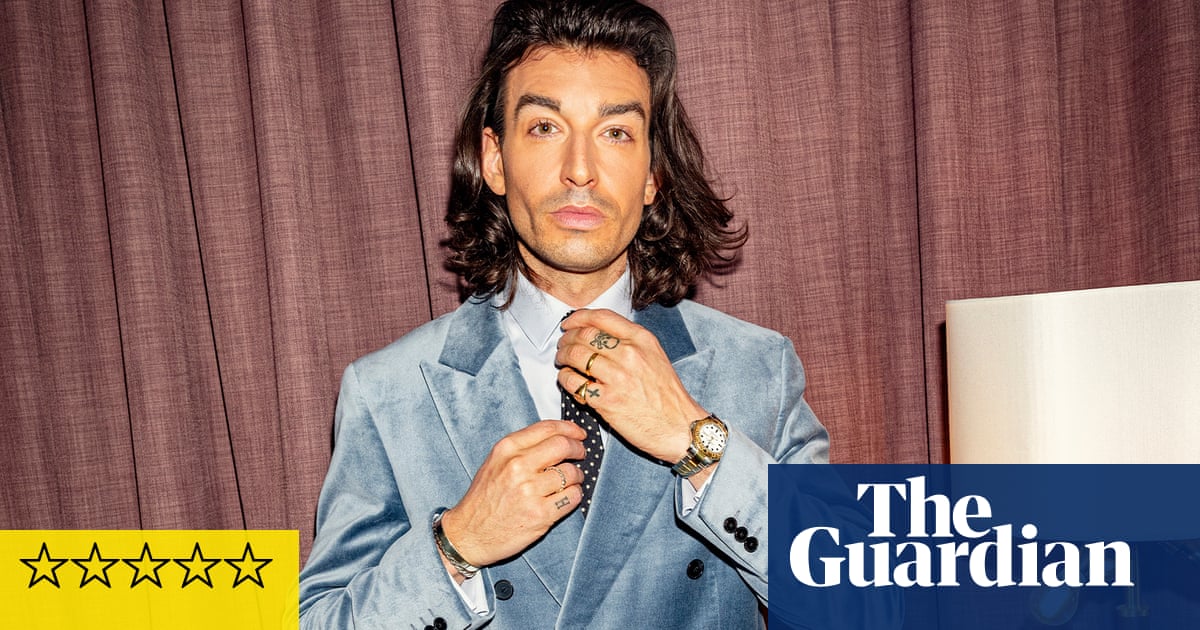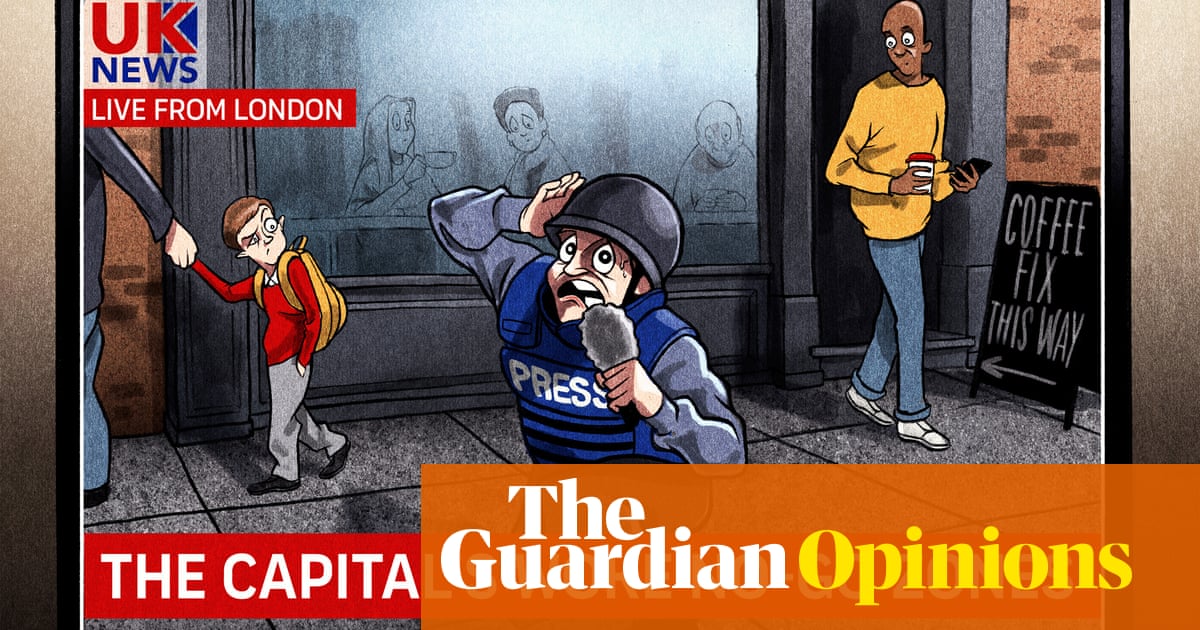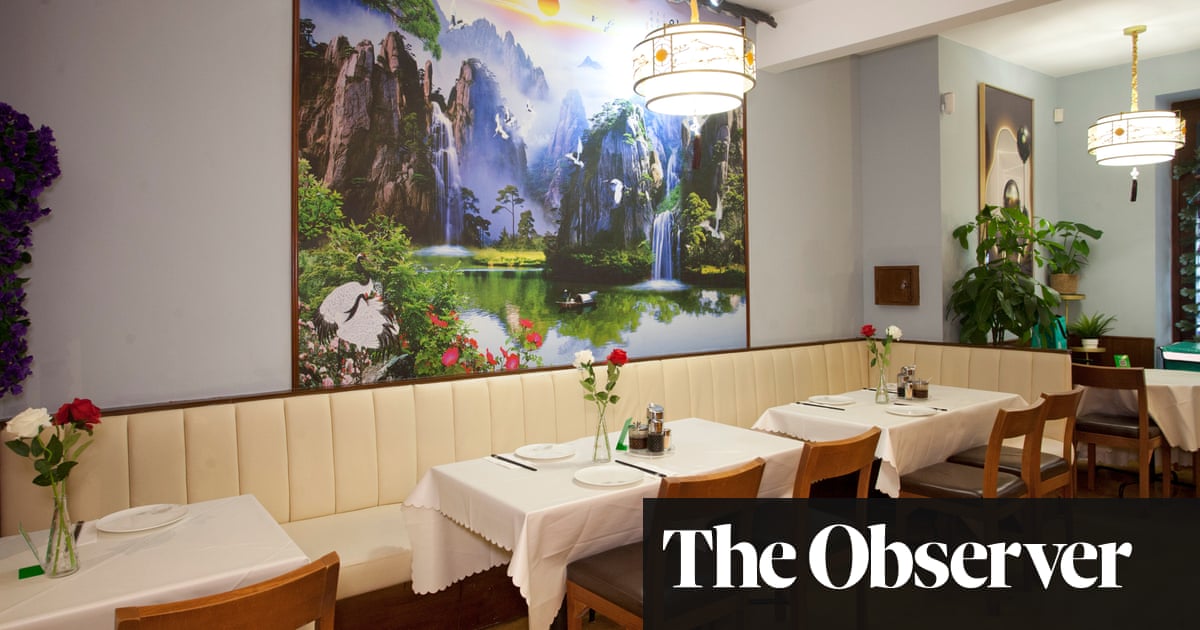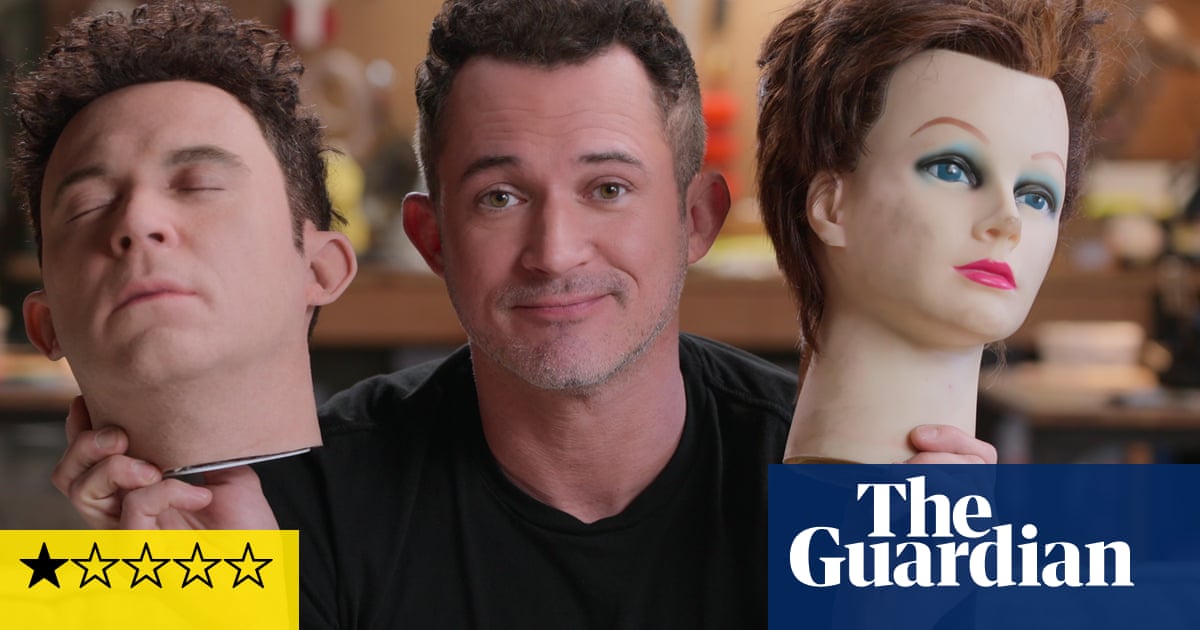
Ihate almost everything about Buying London, the British version of Netflix’s highly successful Selling Sunset, in which grotesquely wealthy people buy property in Los Angeles from glamorous real estate agents whose personalities are plucked from the reality TV presets menu. I hate that it bases all of its dramatic tension on pitting women against each other. I hate that it makes Richard Curtis’s film Notting Hill look like a gritty documentary about the mean streets of London. I hate its England-for-dummies shtick that is clearly pitched at an international market. I hate its reverence for billionaires and bad taste, its celebrity name-dropping without actual celebrities, even the lurching drone footage that seems to have been shot by the Red Arrows.
Which is weird, because I didn’t hate Selling Sunset at all. This is making me reconsider now, but it didn’t feel so bad to watch Selling Sunset’s fantasy Hollywood illusions of grandeur at a safe distance of 5,000 miles or so, its millionaires and billionaires so removed it might as well have been a cartoon. I saw Selling Sunset as quaffable junk, the sort of telly that passes the time pleasantly. It is hard to feel the same about Buying London, because it is boring and infuriating, and neither are the garnishes I like on my trash.
The setup, then. Daniel Daggers runs DDRE Global, a luxury property company that sells houses in London and the surrounding areas, such as Hertfordshire, Dorset and Dubai. DDRE’s price tags are usually in the multimillions, and the commissions for estate agents in the hundreds of thousands. He is assisted by his team, a group of immaculately groomed women and one man called Oli, who looks as if he took a wrong turn at the Made in Chelsea auditions and now has to endure an interior designer named Juliana flirting with him in front of his wife, while Rasa and Lauren bicker over whether Daniel plays favourites with them or not.
According to Daniel, London is the luxury property capital of the world. Everything we see here is ludicrously opulent. In Holland Park, west London, two estate agents marvel at a bath carved from a single piece of stone. Everything has an astonishing number of bathrooms, bedrooms, walk-in wardrobes, spas and pools. They talk about square footage and prestigious addresses and celebrity neighbours. Strangely, they describe the roast dinner you could make in one kitchen in great detail, as if explaining a roast dinner to an audience who can barely imagine such a thing. This is England, the theme park.
Yet it ends up feeling like a weird display of the vast insecurities of the superrich, these people who have spent a fortune on velvet and brass and bird baths for humans. I don’t want to be too Guardian about it – though I am about to be, so apologies in advance. But across the UK, there is a painful and protracted housing crisis, and in London, where the wealth gap remains massive, where 25% of residents are living in poverty after housing costs, and where rents have gone up by 10.6% in just one year, hitting an average of £2,035 a month, this sort of fluff feels less harmless, more crass, and not nearly as fun as when you’re imagining it as some dreamland halfway across the world.
Obviously this will be widely watched, since gawping at rich people and their wallpaper might as well be a national sport. But aside from the politics, aside from the ostentatious, largely off-camera billionaires, as a reality TV show, it is tired. On programmes like this, people play caricatures of themselves, you hope, but we’ve seen all these characters before. Daniel says Daniel Craig would play him in a film of his life; the women suggest he’s more like Austin Powers. They compete for his attention, but he admits that he has sacrificed a personal life to build his business, and blah, blah, blah. If you’ve seen any show even remotely like this, you know exactly how it plays out.
I suspect that Buying London has been produced with at least some concession that it will be watched not with joy, but with rage. In that respect, I bow to Netflix, who have manipulated me into a state of mild fury. Then again, this could be radical leftwing propaganda in disguise. Is this the Trojan horse (house?) that finally ends our passive acceptance of billionaires and exposes the notion that we could all have our own gigantic bird bath if we just work hard enough as the enormous con that it is?












